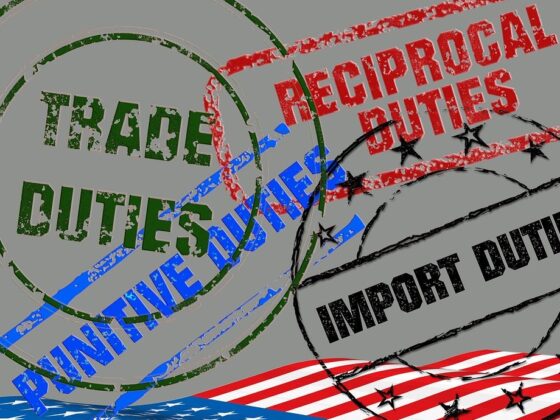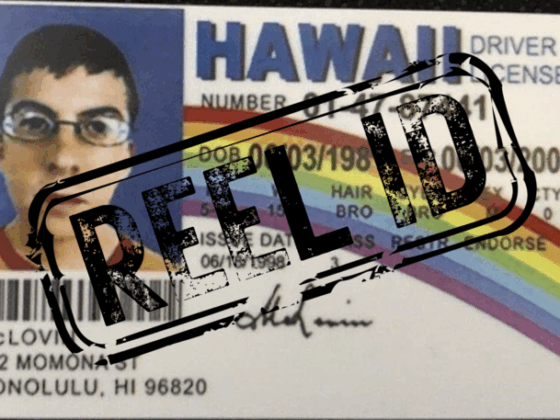Let’s Start With a Quiz: What is a Cookie?
- A delicious cake-like ball of baked dough.
- A marketing director’s dream.
- A compliance liability.
- All of the above.
It is indeed all of the above. From here on out though, we’re skipping the sweet treats and talking specifically about the small text files stored on a user’s device–also known as http cookies. The film The Social Dilemma made the argument that if you aren’t paying for a product, you are the product. So who’s buying? And at what point is a company liable when an individual’s personal data is stolen or compromised? Well, let’s talk about it.
Tell me About Definition 2 (A Marketer’s Dream)
Every link you click on. Every ad you engage with. Every preference you set. It’s all saved. It’s a level of profiling sophistication an FBI agent of the 1900’s could only have dreamed about. These little bits of data can serve the purpose of improving user experience by tracking the following:
- Session Management: Keeping track of user sessions (such as items in a shopping cart).
- Personalization: Remembering user preferences (such as language settings).
They can also be used to monitor user behavior for analytics or advertising purposes by collecting a range of data, including:
- Identifiers: IP addresses, device IDs.
- Behavioral Data: Browsing history, click patterns.
- Preferences: Language, interests.
Under the CCPA, much of this data qualifies as “personal information,” especially if it can be linked to a particular consumer or household (as in–a profile).
What is the CCPA?
The CCPA is one of the most comprehensive privacy laws in the United States. And while it is a California-specific law, it has implications for all businesses in the United States. Often, California sets a precedent for others to follow. The primary objective of the law is to enhance privacy rights and consumer protection for residents of California.
Key provisions of the CCPA include:
- Right to Know: Consumers can request details about the personal information a business collects about them and how it’s used and shared.
- Right to Delete: Consumers can request that their personal information be deleted.
- Right to Opt-Out: Consumers can direct a business not to sell their personal information.
- Non-Discrimination: Businesses cannot discriminate against consumers who exercise their rights under the CCPA.
Tell me More About That Compliance Liability Part
The California Consumer Privacy Act (CCPA), is designed to grant Californians more control over their personal information. While many businesses have taken strides to comply with the CCPA, an often-overlooked facet of personal information is the role of cookies. Under the CCPA, a customer could sue for a data breach if certain information (such as usernames, passwords, identification numbers, medical information, etc.) is exposed as a result of a company’s failure to implement appropriate security measures.
The intersection of cookies and the CCPA presents several liabilities:
- Legal Repercussions
Data breaches under the CCPA can lead to statutory damages ranging from $100 to $750 per consumer per incident or actual damages, whichever is greater. A recent lawsuit has also likely set the stage for more legal battles to come.
- Reputational Damage
Beyond legal consequences, breaches erode consumer trust. Consumers are increasingly privacy-conscious, a breach can lead to lost business and long-term brand damage.
- Operational Challenges
Post-breach, businesses might need to overhaul their data practices, invest in security infrastructure, and undergo audits, all of which can be resource-intensive.
What Constitutes a Data Breach Under the CCPA?
Under the CCPA, a data breach is not just about unauthorized access. The legislation refers to the “unauthorized access and exfiltration, theft, or disclosure” of a consumer’s non-encrypted or non-redacted personal information when a company fails to comply with “reasonable security” measures. This means that if a business fails to adopt said reasonable security measures and a breach occurs, it could face significant repercussions.
When Cookies Lead to Data Breaches
While cookies are essential for modern web functionality, their misuse or mismanagement can inadvertently lead to data breaches under the CCPA. Here’s how:
Unauthorized Access Through Cookies: If cookies storing personal information aren’t adequately secured, malicious actors can exploit vulnerabilities to access this data. For instance, cross-site scripting (XSS) attacks can allow hackers to steal session cookies, leading to unauthorized access to user accounts.
Third-Party Mismanagement: Relying on third-party cookies means entrusting external entities with user data. If these third parties mishandle the data or suffer their own breaches, the originating website can be held accountable.
Unintended Data Sharing: Some cookies might inadvertently share more data than intended. For example, misconfigured cookies might expose user data to unintended recipients or across insecure channels.
Lack of Transparency: If businesses fail to inform users about the extent of data collection via cookies or don’t obtain proper consent, any unauthorized disclosure, even if unintentional, can be construed as a breach.
Best Practices to Mitigate Risks
To navigate the complexities of cookies under the CCPA (and also just to protect consumer information because it’s the ethically sound choice), businesses should adopt proactive measures:
- Comprehensive Cookie Audit
- Inventory: Catalog all cookies deployed on your website, both first-party and third-party.
- Purpose Assessment: Understand why each cookie is used and what data it collects.
- Necessity Evaluation: Determine if each cookie is essential or if its function can be achieved through less intrusive means.
- Enhanced Security Measures
- Encryption: Ensure that cookies containing personal information are encrypted.
- Secure Transmission: Use HTTPS to protect data in transit.
- Set Secure and HttpOnly Flags: This prevents cookies from being accessed through client-side scripts.
- Transparent Disclosure
- Cookie Policy: Clearly articulate your cookie practices, types of data collected, purposes, and third-party sharing.
- Consent Mechanisms: Implement tools that allow users to consent to or opt-out of non-essential cookies.
- Regular Monitoring and Updates
- Vulnerability Assessments: Regularly scan for and address potential security vulnerabilities related to cookies.
- Stay Updated: As regulations evolve, ensure your practices align with current standards.
- Third-Party Due Diligence
- Vendor Assessment: Evaluate the data practices of partners and third-party vendors, ensuring they adhere to stringent security and privacy standards.
- Contracts: Incorporate clauses that hold third parties accountable for data breaches.
The Bottom Line
The digital age offers unprecedented opportunities for businesses to engage with consumers. However, with great power comes great responsibility. The CCPA underscores the importance of safeguarding consumer data, and as we’ve explored, even the humble cookie isn’t exempt from scrutiny. By understanding the potential pitfalls and adopting robust data practices, businesses can achieve compliance and foster trust and loyalty among their user base. This article is for informational purposes only. Businesses should consult with professionals to understand their specific obligations under the CCPA and other relevant regulations. Want to discuss your specific situation? Let’s talk.






